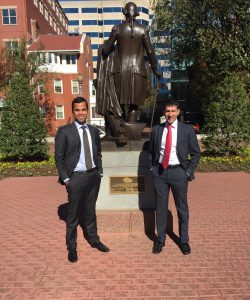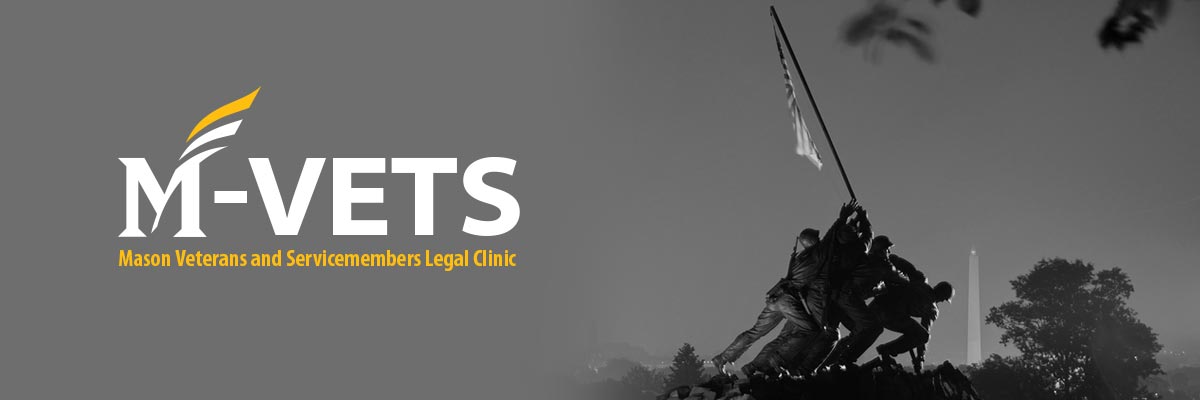
For the first time in program history, two Student Advisors with The Antonin Scalia Law School Mason Veterans and Servicemembers Legal Clinic (“M-VETS”) participated in the 2016 National Veterans Law Moot Court Competition at the George Washington University Law School in Washington, D.C. Matthew McIntee and Rodger Nayak, third year law students at Scalia Law School and first semester Student Advisors with the M-VETS program, entered the competition in September 2016 and worked for two months to prepare a brief in support of the hypothetical Respondent and prepared to argue both sides of the appeal during oral argument at the competition taking place on November 5-6, 2016.
This year’s case dealt with an appeal before the United States Supreme Court pertaining to the VA’s authority to administer medical marijuana to patients. Specifically, the teams were asked to analyze whether the U.S. Court of Appeals for Veterans Claims has the authority to review the validity of laws and regulations listing marijuana as a Schedule I drug for purposes of the Controlled Substances Act and whether the VA’s failure to administer medical marijuana constitutes “carelessness, negligence, lack of proper skill, error in judgment, or similar instance of fault” for purposes of 38 U.S.C. § 1151.
This year’s competition was one of the largest in history with 24 teams competing from 17 law schools, including M-VETS’s first ever appearance in the competition. Despite an outstanding effort by the M-VETS team, Baylor Law School took home top honors in the competition. Regarding the experience, Student Advisor Rodger Nayak stated “in researching our brief and preparing for oral arguments, Matt and I learned the principles, policies, and history of Veterans benefits law. The U.S. has an administrative agency, federal court, and body of case law devoted solely to veterans benefits determinations. Our greater knowledge of this complex area of law, combined with the feedback that the judges at the competition provided us, has helped me and Matt become better advocates for Veterans seeking benefits from the Department of Veterans Affairs.” Student Advisor Matt McIntee echoed this statement and provided “the Veteran’s Moot Court Competition at GW Law was a great opportunity to dive headfirst into a unique, but exceptionally important area of the law. It not only afforded students the chance to hone their brief writing and oral argument skills, but it also helped raise awareness about a growing area of the law that needs solid attorneys.”
M-VETS Director, Timothy MacArthur, indicated that both Student Advisors dedicated a significant amount of time and effort to the brief and oral arguments stating “Matt and Rodger did a great job during the entirety of this competition. This was the first time Scalia Law School participated in this event and we hope to keep sending Student Advisors to this competition in the future. The oral arguments were a very valuable learning experience as the moot court judges were litigators in the area of Veterans Law. This type of competition furthers the goals of inspiring public service in this area of law and provides a practical exercise for experience. Also, M-VETS would like to personally thank Adjunct Professor Brandy Wagstaff who volunteered her time and substantial moot court experience to get Matt and Rodger ready for this competition.”

